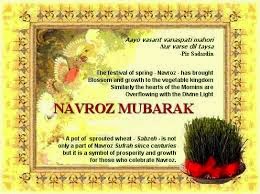History of Ugadi|Happy Ugadi |Happy New Year History 2015:
Yugādi,(Ugādi ‘Samvatsarādi Telugu: Ugadi/Yugadi (ఉగాది/యుగాది), Kannada: ಯುಗಾದಿ Yugadi,Konkani/Marathi: युगादि yugādi and Gudi padwa in marathi) is the New Year’s Day for the people of the Deccan region of India. The name Yugadi or Ugadi is derived from the Sanskrit words yuga (age) and ādi (beginning): “the beginning of a new age”. It falls on a different day every year because the Hindu calendar is a lunisolar calendar. The Saka calendar begins with the month of Chaitra (March–April) and Ugadi marks the first day of the new year. Chaitra is the first month in Panchanga which is the Indian calendar. In some parts of India it is known as Vikram Samvat or Bhartiya Nav Varsh.
History of Ugadi|Happy Ugadi |Happy New Year History 2015
The Ugadi festival is observed on the “Chaitra Shudhdha Paadyami” that is the 1st day of the Chaitra month. As per the Gregorian calendar this coincides with either March or April. In the year 2015, Ugadi is observed on March 21. There is a common belief prevalent among the people that it is on this Ugadi Day, that Lord Brahma, the Hindu pantheon created the world.
While the people of Andhra Pradesh, Telangana and Karnataka use the term Yugadi/Ugadi for this festival, the people of Maharashtra term the same festival, observed on the same day, Gudi Padwa (Marathi: गुढी पाडवा). Marwari, people of Rajasthan celebrate the same day as their new year day Thapna. Sindhis, people from Sindh, celebrate the same day as their New Year day Cheti Chand.Manipuris also celebrate their New Year (Sajibu nongma panba) on the same day. The Hindu New Year, however, is observed as Baisakhi in Punjab, seri Saja in Himachal Kullu Vally, Puthandu in Tamil Nadu and Pohela Boishakh in West Bengal on April 14 or 15. In Kerala, people celebrate the new year as Vishu which falls on April 14 or 15. It is also celebrated in Mauritius.Hindus of Bali and Indonesia also celebrate their new year on the same day as Nyepi. This tri-state festival could be the result of the common rulers from the Satavahana Dynasty
The festival of Ugadi is celebrated in the states of Andhra Pradesh, Karnataka and Maharashtra with immense enthusiasm and festive fervor. While it is known as Ugadi in Andhra Pradesh and Karnataka, the state of Maharashtra refers to it as Gudipadawa. Ugadi also commemorates the commencement of a Hindu lunar calendar.
The name Ugadi has been altered from Yuga Aadi. The term Yugadi has been derived from ‘Yuga’ meaning the ‘era’ or ‘epoch’, and ‘aadi’ meaning ‘the beginning’. Hence Yugadi or Ugadi means the beginning of a new age.
Preparation for the Ugadi celebrations starts almost a week ahead. On the Ugadi day, people prepare themselves by waking up early in the morning and taking a head bath. Next, it is time for the Ugadi decoration wherein, the houses are cleaned and entrances are adorned with fresh mango leaves, which are the symbol for well being and good crops. The Ugadi rituals include the everyday ritualistic worship of God that is performed to invoke His blessings, before starting off with a new year. People engage themselves in praying for wealth, health and prosperity.
Ugadi Festival Special Items:
Happy Ugadi 2015 HISTORY
Happiness and excitement of people knows no bounds as they get involved in shopping for new clothes, items for rituals, gifts for the dear ones etc.
While the raw mangoes fill the air with their sweet aroma, the blossomed Neem on the other hand makes the environment healthy. Its time to take pleasure in the lip-smacking delicacies and the Ugadi special dishes such as “Ugadi Pachchadi” made with the combination of jaggery, tamarind, neem flowers and raw mango. A fascinating fact behind the preparation of this particular item on the auspicious occasion of Ugadi is that, it gives out a message about life; life is all about sorrows and joy, bad and good and we have to treat them alike! Isn’t that interesting?
In the state of Andhra Pradesh, dishes like “Bobbatlu”, “Pulihora”, and other preparations of raw mango is typical to the Ugadi festival. In Karnataka also similar kind of dishes are made on this occasion like “Puliogure” and “Holige”. Sweet Rotis and Puran Polis are made by the Maharashtrians. .
One of the typical yet unique features of the Ugadi happens to be the poetry recitation or “Kavi Sammelanam”. This literary feast acts as a platform for the upcoming poets to showcase their talent. Poems written on various topics ranging from Ugadi and politics to modern trends and social causes are presented to the people.
Happy Ugadi 2015 HISTORYHappy Ugadi 2015 HISTORYHappy Ugadi 2015 HISTORYHappy Ugadi 2015 HISTORYHappy Ugadi 2015 HISTORYHappy Ugadi 2015 HISTORYHappy Ugadi 2015 HISTORYHappy Ugadi 2015 HISTORYHappy Ugadi 2015 HISTORYHappy Ugadi 2015 HISTORYHappy Ugadi 2015 HISTORYHappy Ugadi 2015 HISTORYHappy Ugadi 2015 HISTORYHappy Ugadi 2015 HISTORYHappy Ugadi 2015 HISTORYHappy Ugadi 2015 HISTORYHappy Ugadi 2015 HISTORYHappy Ugadi 2015 HISTORYHappy Ugadi 2015 HISTORYHappy Ugadi 2015 HISTORYHappy Ugadi 2015 HISTORYHappy Ugadi 2015 HISTORYHappy Ugadi 2015 HISTORYHappy Ugadi 2015 HISTORYHappy Ugadi 2015 HISTORYHappy Ugadi 2015 HISTORYHappy Ugadi 2015 HISTORYHappy Ugadi 2015 HISTORYHappy Ugadi 2015 HISTORYHappy Ugadi 2015 HISTORYHappy Ugadi 2015 HISTORYHappy Ugadi 2015 HISTORYHappy Ugadi 2015 HISTORYHappy Ugadi 2015 HISTORY

.jpg)


%2B(1).jpg)
.jpg)





